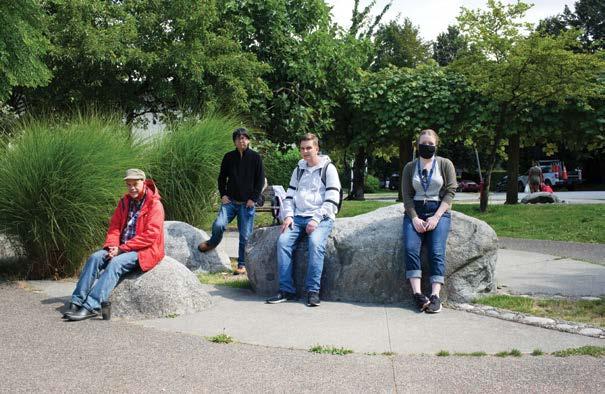THEME
Electronic Wills in BC Greg Blue, QC, Senior Staff Lawyer. BC Law Institute
W
ill-making will soon enter the digital age in BC.
In July 2020, the BC Legislative Assembly passed the Wills, Estates and Succession Amendment Act, 2020 (Bill 21) that will make it possible to have a valid Will that exists entirely in electronic form. The Bill 21 amendments also authorize witnessing of Will execution by means of video technology that allows the testator and witnesses to be in the “electronic presence” of one another. That will apply to conventional Wills on paper as well as ones that consist only in a computer file. In the case of conventional Wills, the witnesses would need to sign identical counterpart copies of the Will if they observe the testator’s signature remotely by means of audiovisual technology. In the case of an electronic Will, execution and attestation could be accomplished by affixing unique digital signatures to the Will by means of an e-signature program like DocuSign, despite the fact that the testator and witnesses may all be in different locations. It will remain a requirement that the signature and witnessing happen in real time, because the definition of “electronic presence” in the amendments requires that the testator and witnesses be able to
34
TABLE OF CONTENTS
communicate simultaneously as if they were physically present in the same location. Viewing a recording of the testator signing would be insufficient for valid attestation.
While the Coronavirus pandemic was the principal impetus toward relaxing the requirement that the Will-maker and witnesses be physically present in the same place when a Will is signed, it was not the only reason for introducing electronic Wills on a permanent basis. Remote witnessing of Wills that took place on and after 18 March 2020 is retroactively validated by Bill 21, as long as it would have satisfied the requirements of “electronic presence.” The date of 18 March 2020 coincides with the declaration of a state of emergency in British Columbia; it is also the date on which the Electronic Witnessing of Wills (COVID-19) Order, Ministerial Order 161/2020, retroactively took effect. Ministerial Order 161/2020 was made under the Emergency Program Act to take account of the difficulties that rigorous social distancing placed in the way of Will-signing, and to respond to BC Notaries Association
concerns expressed by lawyers and the public about the situation. The provincial Ombudsperson later cast doubt on the legality of the emergency order, arguing in a report issued in June 2020 that the order could not override the requirements of WESA for attestation of Wills and went beyond the minister’s authority. Bill 21 will repeal the order, as it will no longer be needed once the amendments to WESA contained in the bill come into force. While the Coronavirus pandemic was the principal impetus toward relaxing the requirement that the Will-maker and witnesses be physically present in the same place when a Will is signed, it was not the only reason for introducing electronic Wills on a permanent basis. The increasing reliance on digital technology in daily life and work was another. The Hon. David Eby, Attorney General of BC, stated on second reading of the bill that it was not merely a reaction to pandemic conditions, but was based on work on electronic Wills by the Uniform Law Conference of Canada (ULCC) that had been underway for more than a year. He added that he expected other provinces would follow British Columbia’s lead in implementing the electronic Wills provisions. One of the implications of allowing electronic Wills is that there may be no true “original” like the actual Volume 29 Number 3 Fall 2020

























